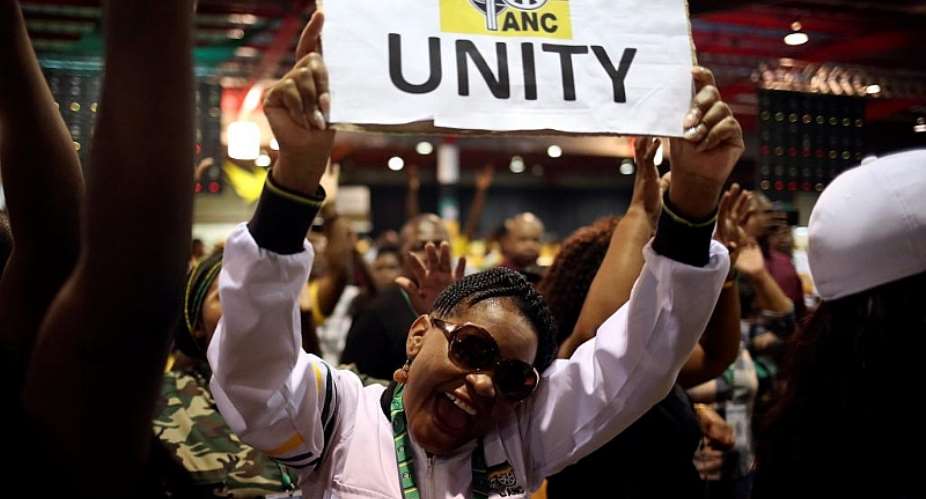Big South African voices have joined the campaign to bring out the vote as voter apathy looks set to spoil the landmark 8 May General Elections.
According to the final daily tracking poll published this Monday by South Africa's Race Relations Institute, up to 29 percent of eligible voters plan to stay at home on Wednesday.
Times Live, which leads with the IRR findings underlines portions of the research showing that only 51 percent of the remaining 71 percent of people who will be casting ballots made known their plans to vote for the ruling African National Congress. The projections are down from the ANC's 62.15% victory in the 2014 elections.
Battle to bring out the vote
Mail and Guardian says the Western Cape looks safe for the main opposition Democratic Alliance after Mmusi Maimane's party recorded a big jump from 65% at the beginning of the week to 75% at the close of campaigning.
Disenfranchised youths
According to South Africa's Independent Electoral Commission about 6 million young South Africans are not registered to vote in the 8 May election - a large swathe of the generation which grew up after the end of apartheid in 1994.
Of those aged between 18 and 30, more than half are missing from the electoral roll 25 years after Nelson Mandela came to power in the republic's first multi-racial elections.
In the wake of growing disenchantment over the government's under-achievement, the Sowetan publishes an incisive column by Prince Mashele, co-author of the best-selling book “The Fall of the ANC: what next?"
Pick your idiot and hold him accountable
“It is better to be governed by an idiot in whose installation you have had a hand than to be ruled by a sage who has imposed himself,” said Mashele who is also Executive Director of the Johannesburg-based Center for Politics and Research.
Speaking in an interview with RFI, the popular political commentator also points to the graves of freedom fighters killed while campaigning for voting rights for blacks as a grim reminder that the right to elect a government of your choice was a matter of life-and-death in South Africa.
Political disenchantment
Prince Mashele opposes the argument by disenfranchised voters who no longer want to be part of political dupery. “Voting is not a magic wand to turn your life around,” he argues.
The ANC currently stands to win 49.5 percent of the vote nationally, down 5.2 percentage points from its position in February 2019. This is while the main opposition Democratic Alliance is down by half a percentage point from its 22 percent rating two months ago.
Changing dynamics
The opinion ratings for the Economic Freedom Fighters of Julius Malema recorded a 2.7 percent leap from the 12 percent recorded in February and are expected by pollsters to score 14.9 percent, an outcome which would mark a turning point in the party's march into national politics.
"All hail kingmaker Malema" proclaims Times Live, the publication boasting that "the numbers don't lie".
On the question why the DA has not capitalized on the ANC's decline, Prince Mashele noted that the predominantly white DA has not been able to attract legitimate and credible black leaders into its ranks.
Journey's end for ANC?
Mashele also defends the thesis upheld in his best-selling book “The Fall of the ANC: what next”, that he expected to see a South Africa where the ANC was no longer in government during his lifetime.
“When I wrote this book back in 2014, people thought that I was mad,” brags Mashele.
“Look at what happened in 2016, when the ANC lost key metros such as Johannesburg, the economic hub of South Africa, Zwane/Pretoria, SA's administrative heart, as well as Nelson Mandela Bay Municipality.”
While he expected the old liberation movement to snatch a close victory in this year's election, Prince Mashele said he was projecting on a coalition government coming to power in 2024.
“I don't think the ANC will be the government of South Africa in ten years' time,” concludes the Executive Director of the Johannesburg-based Center for Politics and Research.





 2024 elections: Resign if you can't be faithful to party - Sagnarigu NDC PC desc...
2024 elections: Resign if you can't be faithful to party - Sagnarigu NDC PC desc...
 Five arrested, remanded over alleged murder of two police officers at Transacco
Five arrested, remanded over alleged murder of two police officers at Transacco
 Tax exemptions better than incentives for churches – Tax Analyst tell Bawumia
Tax exemptions better than incentives for churches – Tax Analyst tell Bawumia
 Transport Minister sues Law Platform Editor for defamation
Transport Minister sues Law Platform Editor for defamation
 Voter registration: Police arrest NPP Treasurer for Mpohor for registering minor
Voter registration: Police arrest NPP Treasurer for Mpohor for registering minor
 "This nonsense must stop" — Lawrence Tetteh vows to march to Jubilee House over ...
"This nonsense must stop" — Lawrence Tetteh vows to march to Jubilee House over ...
 2024 elections: “If indeed you stand for peaceful elections the time is now for ...
2024 elections: “If indeed you stand for peaceful elections the time is now for ...
 I have the attributes to be president of this country — Bernard Monarh
I have the attributes to be president of this country — Bernard Monarh
 Cecilia Dapaah saga: ‘Turf war’ between AG, EOCO, OSP indicates they’re not ‘cor...
Cecilia Dapaah saga: ‘Turf war’ between AG, EOCO, OSP indicates they’re not ‘cor...
 Ghana will become the first African country to embrace blockchain-powered gover...
Ghana will become the first African country to embrace blockchain-powered gover...
